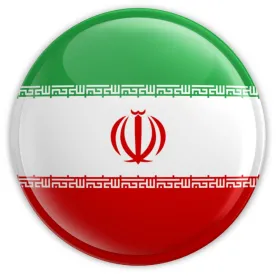On Thursday, September 10, 2015, U.S. Senate Democrats cleared a hurdle for the proposed Iran nuclear agreement by blocking a Senate resolution that would have rejected the deal. The result, in which Senate Republicans mustered 58 of the 60 votes needed to break a Democratic filibuster, cleared a major hurdle on the way to implementing the historic agreement, known as the Joint Comprehensive Plan of Action, or JCPOA. As we reported here on July 14, 2015, the United States and the international community agreed in the JCPOA to lift certain sanctions in exchange for Iran’s ceasing its nuclear weapon program. The agreement is the result of negotiations among Iran and the so-called P5+1 (the United States, the UK, China, France, Russia, and the EU). The U.S. Congress was given 60 days to debate the agreement, but President Obama has promised to veto any resolution rejecting the agreement. Now that the Senate resolution has failed, the U.S. House of Representatives is pursuing more creative options, including a potential lawsuit against the President, according to the Washington Post.
Meanwhile, the focus of the deal returns to Iran. The agreement next requires the Iranian parliament to vote to permit the International Atomic Energy Administration to monitor Iran’s fissile material stockpiles, and begin continuous inspections and environmental samplings at Iran’s nuclear sites. The IAEA must thereafter certify that Iran has fulfilled its obligations in those and other areas (described in Sections 15.1 to 15.11 of Annex V to the Agreement, available for review here). On the day IAEA makes that certification (known under the Agreement as “Implementation Day”), certain U.S. and UN sanctions will be lifted. Contrary to some reports, the lifting of U.S. sanctions will be very narrow. As we reported here, U.S. companies and U.S. individuals will continue to be strictly prohibited from conducting business with Iran (other than long-permitted trade in food and medicine). Additionally, all U.S. sanctions designed to prevent terrorism and proliferation of weapons of mass destruction will remain in place. The only sanctions the United States is obligated to lift on Implementation Day are those applying to non-U.S. companies and individuals, and only in specific sectors.
Moreover, if at any time Iran violates the Agreement, sanctions may be re-imposed with immediate effect. That provision, known as “snap-back,” has been described as a is a “critically important tool in the JCPOA.” But as written, the snap-back provision raises more questions than answers. One very important question is what will become of contracts signed during the time between Implementation Day and the day of snap-back. Presume for a moment that Implementation Day is declared on a Tuesday, and a French company signs a deal with an Iranian company on Wednesday to build an oil refinery in Iran. Presume further that Iran violates the JCPOA on Thursday, and sanctions snap back on Friday. Can the construction go forward? Or will the United States impose sanctions on the French company for constructing the refinery? Some have argued that the snap-back provision “grandfathers” the refinery contract, creating a giant loophole for transactions under such contracts. As the Weekly Standard framed that argument last week, “the Joint Plan grants Iran and friends grounds to exclude from snapback sanctions long-term sales of Iranian oil and gas, or virtually any non-nuclear items that Iran wishes.” Needless to say, the U.S. government takes a different view. The White House’s 112-page cheat sheet for the JCPOA states unequivocally that “there is no ‘grandfather clause’ in the JCPOA.” Which is it?
The place to start in answering the question is in the agreement itself. Paragraph 37 of the JCPOA states, in relevant part, as follows:
37. Upon receipt of the notification from the complaining participant, as described above [i.e., any member of the P5+1 may bring Iran’s non-compliance to the UN Joint Commission for resolution under Paragraph 36 of the Agreement], including a description of the good-faith efforts the participant made to exhaust the dispute resolution process specified in this JCPOA, the UN Security Council, in accordance with its procedures, shall vote on a resolution to continue the sanctions lifting.If the resolution described above has not been adopted within 30 days of the notification, then the provisions of the old UN Security Council resolutions would be re-imposed, unless the UN Security Council decides otherwise. In such event, these provisions would not apply with retroactive effect to contracts signed between any party and Iran or Iranian individuals and entities prior to the date of application, provided that the activities contemplated under and execution of such contracts are consistent with this JCPOA and the previous and current UN Security Council resolutions. The UN Security Council, expressing its intention to prevent the reapplication of the provisions if the issue giving rise to the notification is resolved within this period, intends to take into account the views of the States involved in the issue and any opinion on the issue of the Advisory Board. Iran has stated that if sanctions are reinstated in whole or in part, Iran will treat that as grounds to cease performing its commitments under this JCPOA in whole or in part.
The stated U.S. government position would hold (in our hypothetical scenario) that the act of having entered the contract on Wednesday would not cause sanctions to be imposed on the French company, since sanctions were lifted on Tuesday. But performing the contract after Friday would subject the French company to snapped-back U.S. sanctions. U.S. officials have said publicly and privately that foreign companies signing deals with Iran after Implementation Day should write termination clauses into their contracts with Iran providing that the contract could be terminated in the event sanctions were snapped back. That approach would, according to U.S. officials, place the cost of Iranian violation of the JCPOA where it belongs, on the Iranian party to the contract. But as one international negotiator told me, “good luck negotiating that clause.” (By the way, we hear from our sources on Iranian contract law that a standard force majeure clause would not do the trick – Iranian law would not recognize the imposition of sanctions as a force majeure event).
Of course, the U.S. government position makes perfect political sense. If the Weekly Standard is right in saying that contracts are grandfathered, the snap-back provision would be badly de-toothed and President Obama’s defense of the JCPOA will become much harder. But Paragraph 37 doesn’t unequivocally support the U.S. view either. Any reader of the JCPOA might reasonably conclude from a facial reading of Paragraph 37 that post-Implementation Day contracts are safe from sanctions, since it says snapped-back sanctions “would not apply with retroactive effect to contracts signed” after Implementation Day. The U.S. Government quite understandably thinks the better reading of Paragraph 37 is that the term “would not apply with retroactive effect” applies only to the activities after Implementation Day and before snap-back, and not to performance after snap-back. Under the U.S. view, companies would have to wind down their contracts after snap-back, or risk sanctions. The U.S. position is somewhat bolstered by the last clause of the paragraph, “provided that the activities contemplated under and execution of such contracts are consistent with this JCPOA and the previous and current UN Security Council resolutions.” The United States would very likely take the position that post-snap-back activities under the contract would be inconsistent with the JCPOA.
Critics of the U.S. view might argue that the phrase “activities contemplated and execution” says nothing about the post-Implementation Day activities actually conducted under the contract. (That is, if the drafters wished to make clear that performance after snap-back would be subject to sanctions, they could have written that “execution and performance of such contracts” must be consistent with the JCPOA. In that case, after snap-back, performance of a contract would be inconsistent with the JCPOA and would be clearly subject to sanctions. But the agreement as drafted leaves an ambiguity as to whether Paragraph 37 authorizes sanctions to be imposed on companies who sign lawful deals after Implementation Day and continue to perform after snap-back.
Our view is that regardless of the language, the U.S. government is very likely to attempt to impose sanctions on post-snap-back performance of contracts if snap-back occurs. Throughout the history of U.S. sanctions (somewhat unlike European sanctions) the United States generally has not allowed pre-sanctions contracts go forward. But what remains to be seen is how that policy might play out in practice. Another bit of history may be instructive here: when the Comprehensive Iran Sanctions, Accountability, and Divestment Act, became law in 2010, many foreign companies were potentially subject to sanctions because their existing contracts required performance of activities in Iran that were subject to U.S. sanctions imposed after the relevant prohibitions went into effect. Many of those companies entered talks with the U.S. government to avoid the imposition of sanctions in exchange for an agreement to wind down their investments over time. It bears watching whether future contracts under the JCPOA will garner the same treatment from the United States. In the meantime, contracts with Iran must be thought through very carefully in order to comply with an increasingly complex global web of sanctions, sanctions relief, and enforcement policies.



 />i
/>i
